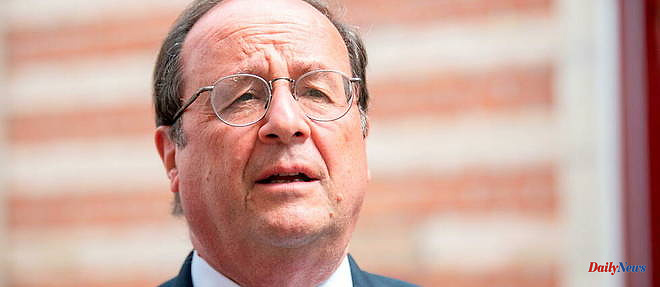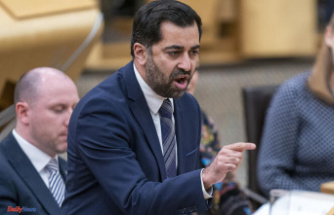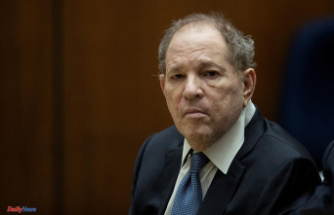When he arrives on stage, drunk with victory, frumpy in his asymmetrical suit, one sleeve of which seems shorter than the other… the audience is startled. Is it really François Hollande on the stage of the free theatre*? The spectators widen their eyes. Some pinch themselves. No, it's not really the former President of the Republic. Only the actor Scali Delpeyrat who imitates him to perfection. But it is indeed his words that are spoken on the set.
Adaptation of the book-interview by Gérard Davet and Fabrice Lhomme, A president should not say that..., published in 2016, by Stock editions, the show, on display since February 10, offers a staggering mise en abyme. We see the former head of state accessing the Elysée then agreeing to give two journalists his confidences on many political subjects until his mandate turns into vaudeville at the time of his separation from Valérie Trierweiler, his girlfriend then.
Co-written with François Pérache, a former member of Lionel Jospin's cabinet who became a television screenwriter (we owe him several episodes of Un village français), this show produced by Jean-Marc Dumontet, whose closeness to Emmanuel Macron we know, could have been a simple settling of accounts with the former president. He is not. If there is a lot of laughs there, it cannot be confined to a simple imitation performance à la Nicolas Canteloup, himself a "foal" of the same Dumontet.
"The idea was not to ridicule the former president, but to show how he had to face a series of crises", specifies Thibault de Montalembert who slips, with Lison Daniel, into the costume of one of the two interviewers of the Head of State. An experienced investigator confronted with an editor-in-chief (played by Hélène Babu) whose procrastination exasperates him, the character portrayed by the actor who has become popular thanks to the series Ten percent, synthesises the two authors of the work. While Lison Daniel interprets a fictional figure, a female reporter driven by ambition and eager to make a name for herself with a "hit".
All the interest of the piece consists precisely in observing the game of cat and mouse in which these three characters engage, all experienced in political communication. It reveals how the interviewee thinking he is smarter than his interlocutors ends up letting his guard down and dropping the mask, if not out of self-conceit, at least out of overconfidence. The exercise will have the devastating consequences that we know. This book will have participated, as much as his marital crisis and the division of the left, in his decision to give up running for the 2017 elections.












